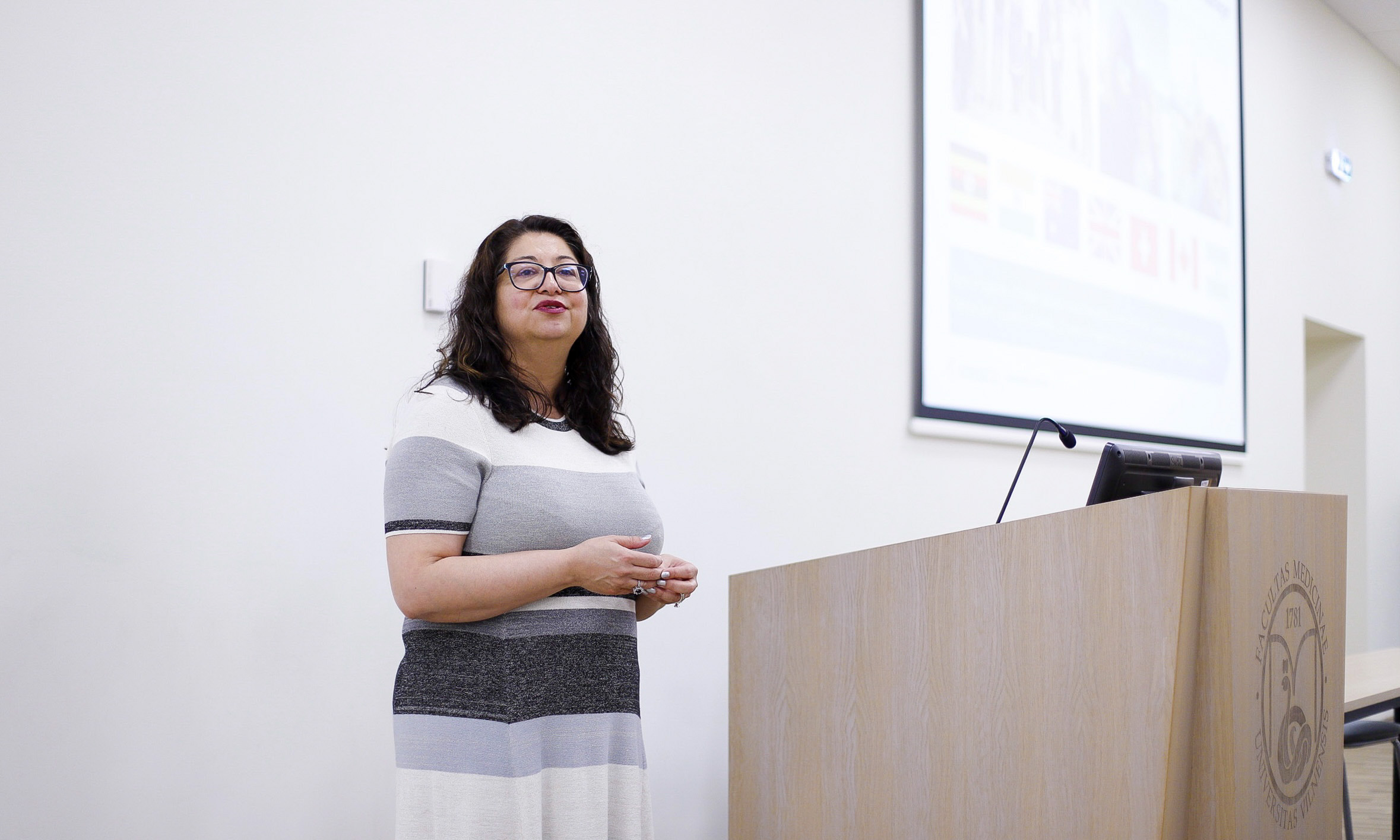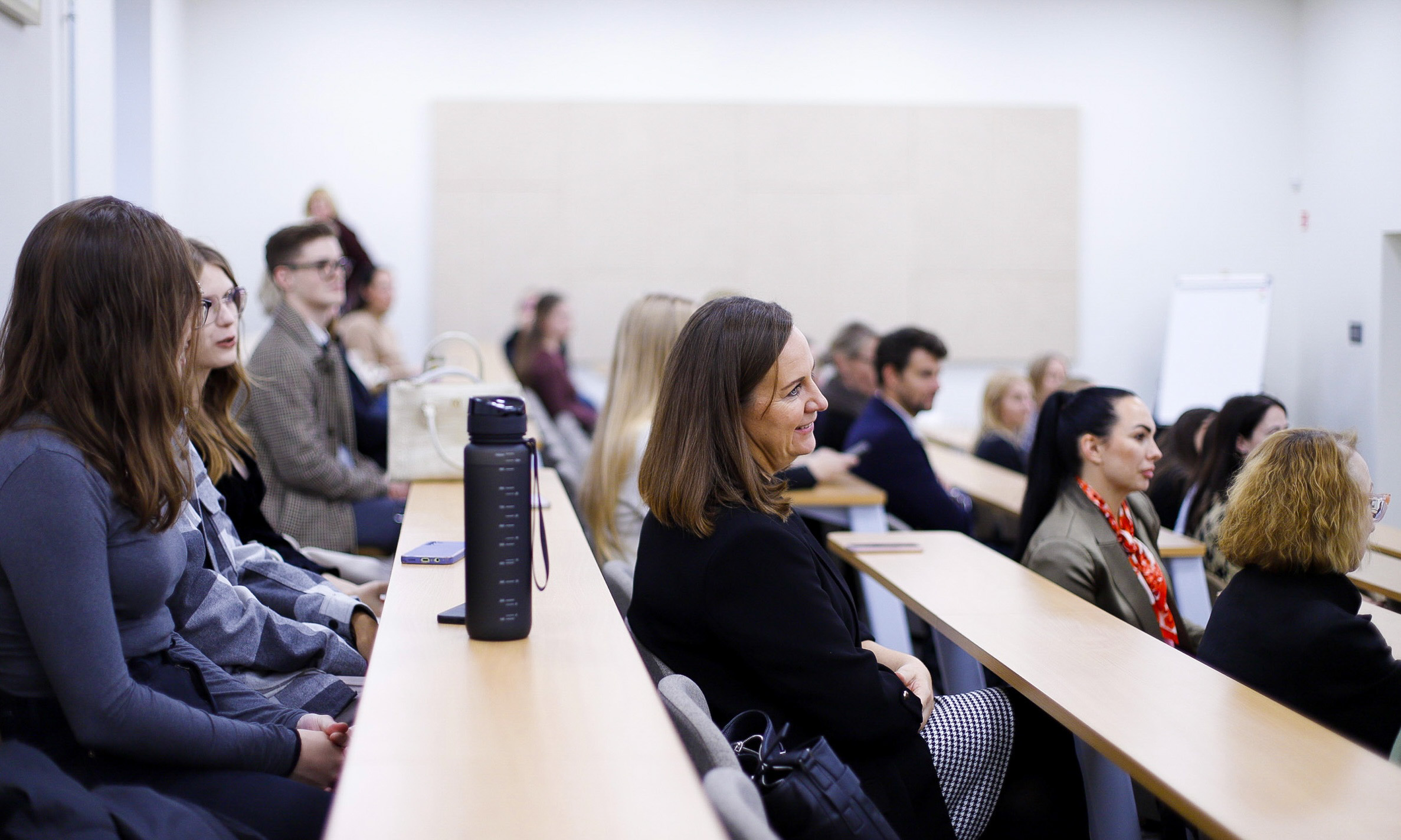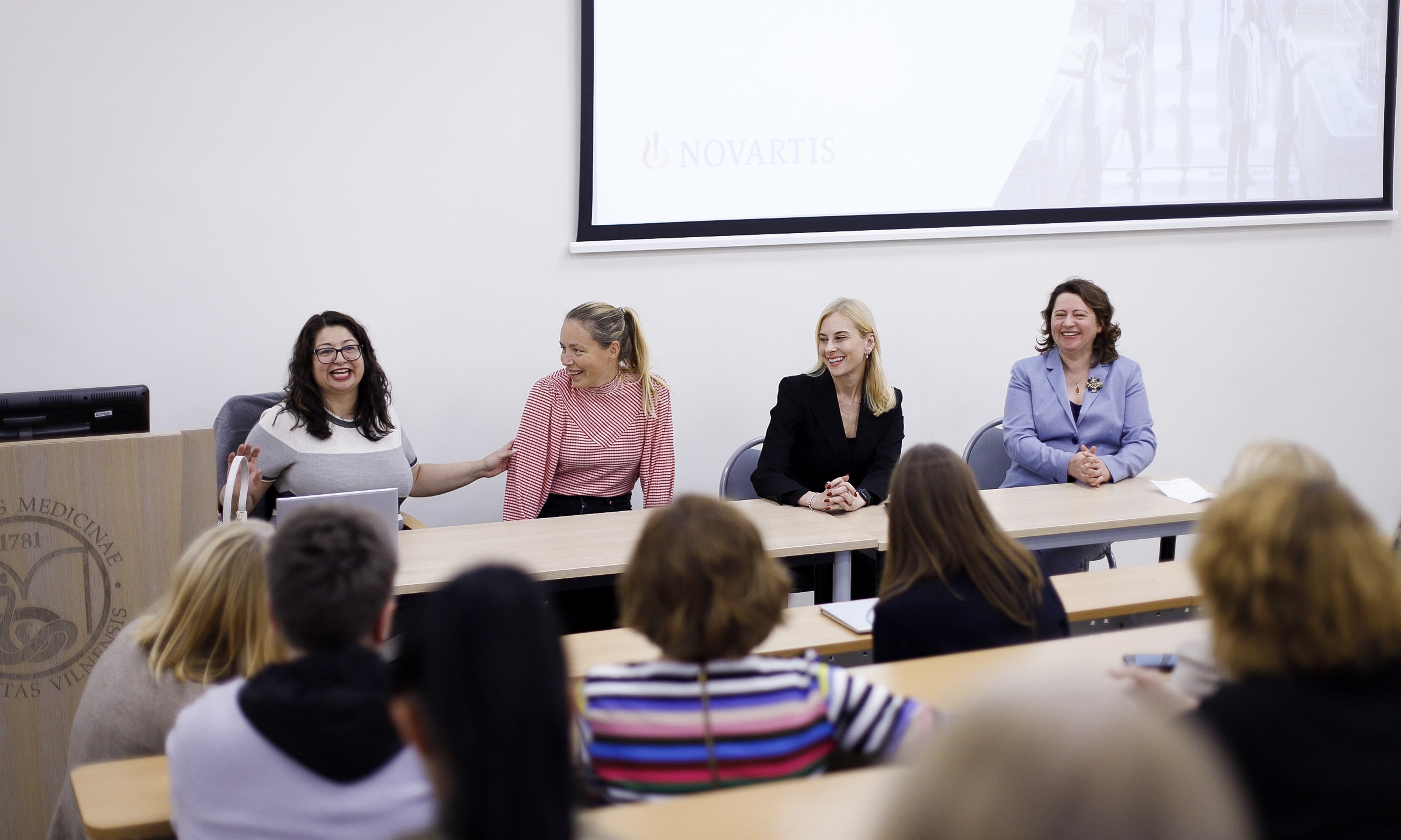 Sweta Ghelani / MF archive
Sweta Ghelani / MF archive
On 30 October this year, the Faculty of Medicine at Vilnius University (VU MF) hosted an event on women’s leadership. Sweta Ghelani, President of Novartis Pharmaceuticals, presented Women’s Leadership and the Prospects for Biotechnology Progress. With over 20 years of experience in the pharmaceutical industry, Ghelani has worked in marketing, sales and other areas, and has gained professional knowledge and experience across four continents, in Australia, Switzerland, Canada and Argentina.
Assoc. Prof. Dr. Kristina Garuolienė, Head of the Centre for Pharmacy and Pharmacology at the Faculty of Medicine, opened the event. Following the presentation, Ghelani, Prof. Ieva Plikusienė, researcher and lecturer at the VU Faculty of Chemistry and Geosciences, Monika Katkutė, founder of the Vedliai start-up, and Dr Ingrida Lisauskienė, Head of the Intensive Care Unit I and anaesthetist-resuscitation practitioner at VU Santaros Klinikos and lecturer at the Faculty of Medicine, participated in a discussion on the topic of women’s leadership in the health sector.
 Women’s Leadership and the Prospects for Biotechnology Progress / MF archive
Women’s Leadership and the Prospects for Biotechnology Progress / MF archive
In her presentation, Ghelani talked about the role of the biopharmaceutical industry in healthcare and society, and the history, vision, achievements and challenges of the Novartis biopharmaceutical company. The speaker also discussed what it meant to be a female leader in the biopharmaceutical industry, sharing her personal professional journey, and speaking about the future of women’s leadership which entails the issues of skills development, social responsibility, and the training and development of the successful employees of the future.
“Most of today’s presentation is about my personal journey as a woman in biopharma. I will tell you how I got into this field and why I joined Novartis. In fact, I arrived in Australia as a refugee. I was lucky to study pharmacy in Melbourne and practice at one of the biggest hospitals – The Royal Melbourne. Of course, I could have stopped at this point, become a pharmacist in Australia and never left my beautiful homeland. But then an opportunity to join Novartis presented itself. This gave me so many things: living and work in different countries, an opportunity to see different healthcare systems and of course, the chance to experience different cultures,” Ghelani explained.
Ghelani described how Novartis Pharmaceuticals, has been able to successfully collaborate with patients, doctors, industry and government, helping to achieve the best results. “When I started working in the biopharmaceutical industry, people often asked me why I made this decision. My experience of working at the Royal Melbourne Hospital as an HIV pharmacist and being in the thick of the HIV epidemic in the 1990s taught me a lot, and I witnessed people succumbing to the most horrific deaths,” Ghelani said.
 From the left: Sweta Ghelani, Monika Katkutė, Prof. Ieva Plikusienė, Dr. Ingrida Lisauskienė / MF archive
From the left: Sweta Ghelani, Monika Katkutė, Prof. Ieva Plikusienė, Dr. Ingrida Lisauskienė / MF archive
She offered some inspiring advice to the audience: “I wish someone had told me ‘You can do it!’, 20 years ago. We can’t make assumptions about what a woman wants to achieve in her life. Her personal circumstances have nothing to do with what she wants to do professionally <...> If you can’t cherish your ambition, ask if you can afford to lose yourselves. I want to encourage the women gathered here today, to take as many risks as you can, get out of your comfort zone, learn to love and navigate ambiguity, and invest in your experience. You will repeatedly be told ‘No’ or, worse, ‘You can’t do this!’. But don’t worry, don’t take ‘No’ for an answer. You are the main storyteller of your story.”
Those participating in the discussion shared their own professional stories, the challenges they overcame, and the goals they achieved while always looking for answers to the important questions concerning women’s leadership in the healthcare sector: what it really means to be a woman leader, what is missing in today’s leadership, what are the leadership trends, and why emotional intelligence is as important as collaboration.
